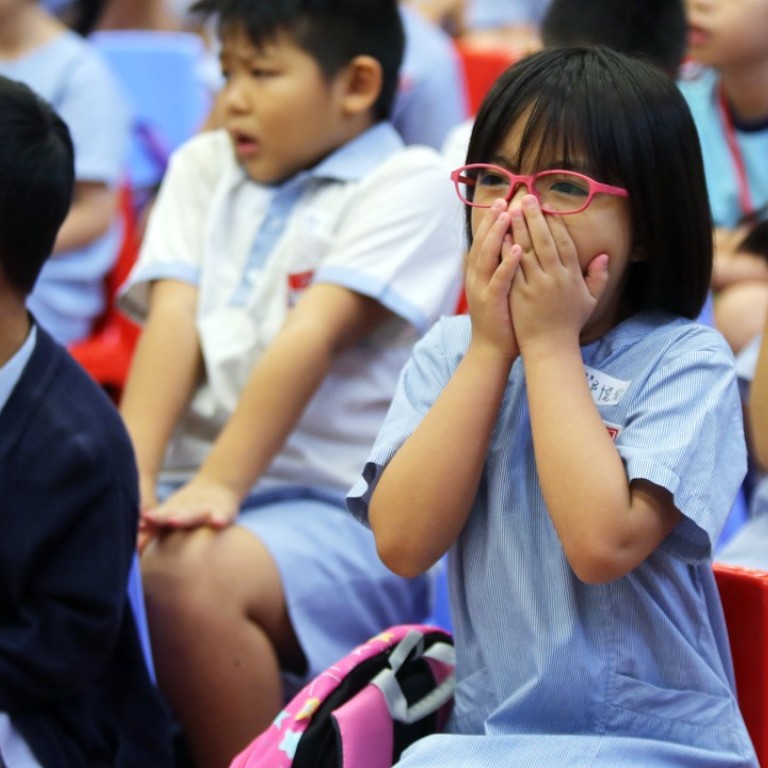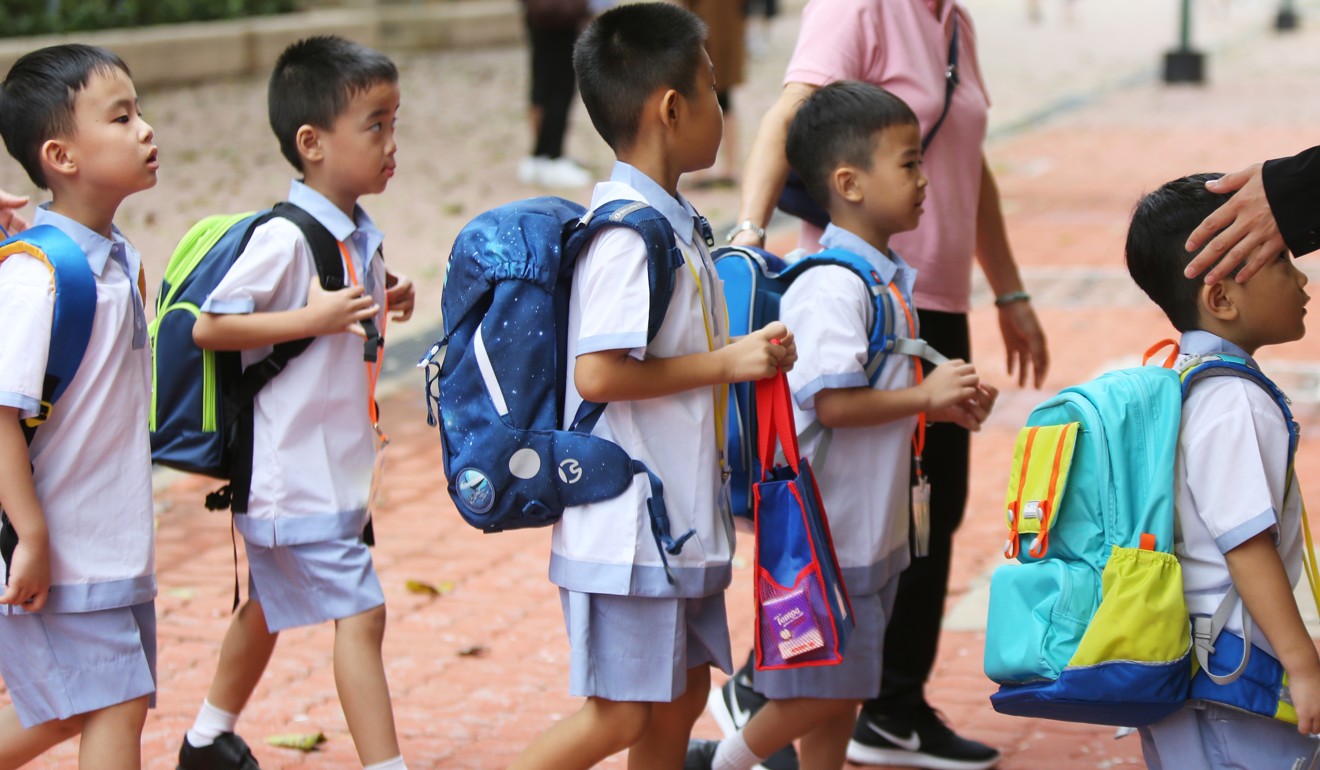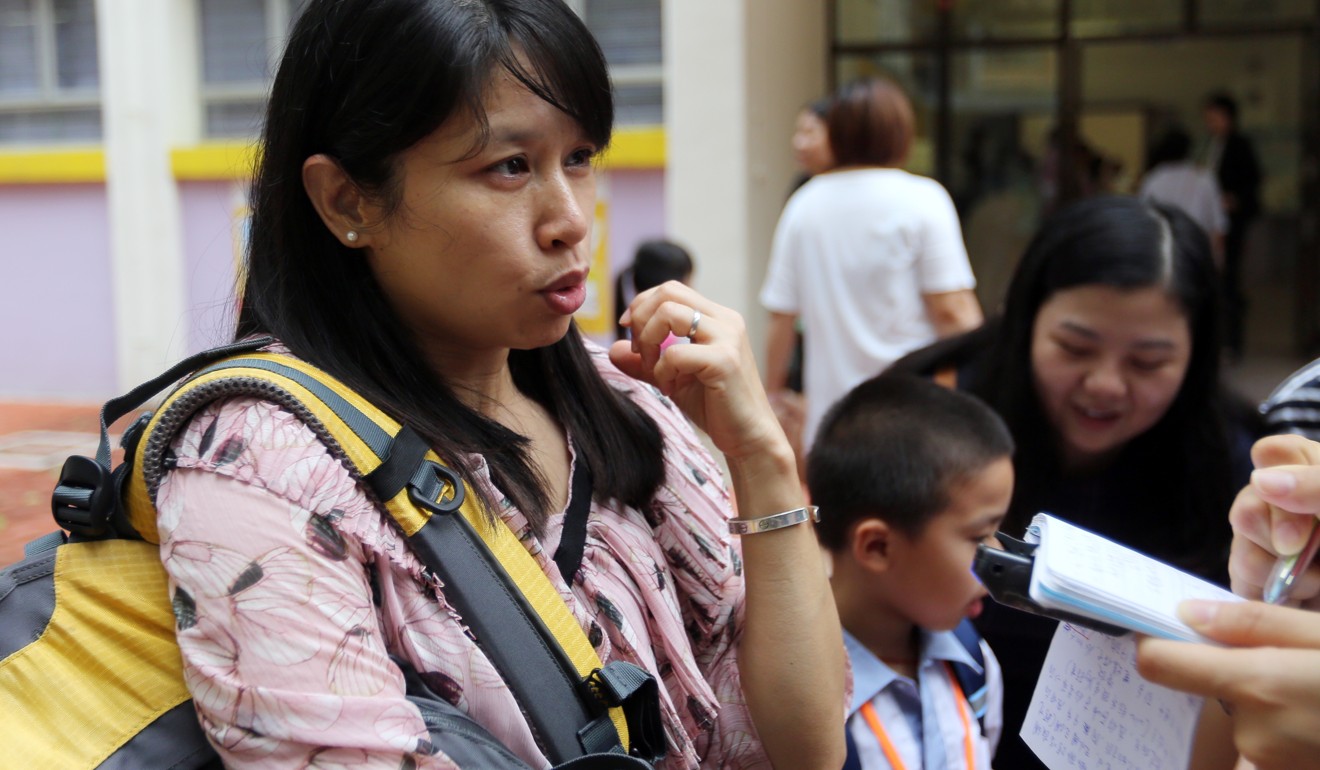
Schools in Hong Kong feel effects of children heading to mainland China for school
Drop in number of ‘cross-border children’, which comes after central government policy change in April, means uncertainty for teachers and schools
Hong Kong’s education chief said the city’s schools have felt the impact of China’s decision to let children born in the city to mainland Chinese parents study north of the border, with fewer pupils studying in the city than last year.
Fewer pupils means financial uncertainty for some teachers and even for some schools, but Kevin Yeung Yun-hung said the Education Bureau would have to wait until the middle of this month before it had the full picture.
More than 202,000 children were born in Hong Kong to mainland parents between 2001 and 2012, thereby gaining permanent residency in the city. That was until the government stopped mainland women giving birth in local hospitals, in 2013.
New year at ‘shadow pupil’ school brings worries, and some hopes, for parents
Until this year those children were not allowed to go to Shenzhen’s public schools, so they had to come to Hong Kong for school, adding to local competition for school places, homes and other resources.

“We expected some cross-border students would choose not to come to Hong Kong to study, but the government is responsible for making sure there are enough places,” Yeung said after visiting a school in Tseung Kwan O on Friday morning. “We will only know of the ... result of the policy in early or mid-September.”
For example, in June this year, the government allocated 488 Primary One places to the school, but only 178 students registered. On Friday, only 133 of those showed up, which meant about one in every four places the government allocated was actually used. Of the 133 students, 58 came from the mainland.
Chan said many students might find the school too far away from their homes and might have settled on the mainland for schooling.
More than half of secondary school pupils show symptoms of depression, quarter display signs of anxiety
Although fewer cross-border pupils went to the school, some mainland parents are still heading south to find schools.
Chan Xiaolian, who lives in Shenzhen, still takes her two children to the Tin Shui Wai primary school. She said she believed Hong Kong schools provided a better education.
“Schools in Hong Kong provide all-round education, which can foster my son’s interpersonal skills, whereas schools in the mainland are too academic-orientated,” she said.
Even though she has to spend hours in the morning taking her son to school, she said she was sure it was the right choice.

“My son’s education is most important to me,” she said.
And Yiu Ling, a new immigrant from Shenzhen who now lives in Yuen Long with her family, said: “My friends in Shenzhen wished their children could study in Hong Kong, but they worry their kids will be lonely since [the parents] have a permanent job on the mainland already.”
A few months ago, the government gave her son a place at CCC Fong Yun Wah primary, and she said she hoped it would help him learn English.
“My son can learn English at an earlier age and have better career prospects if he studies here,” she said.
